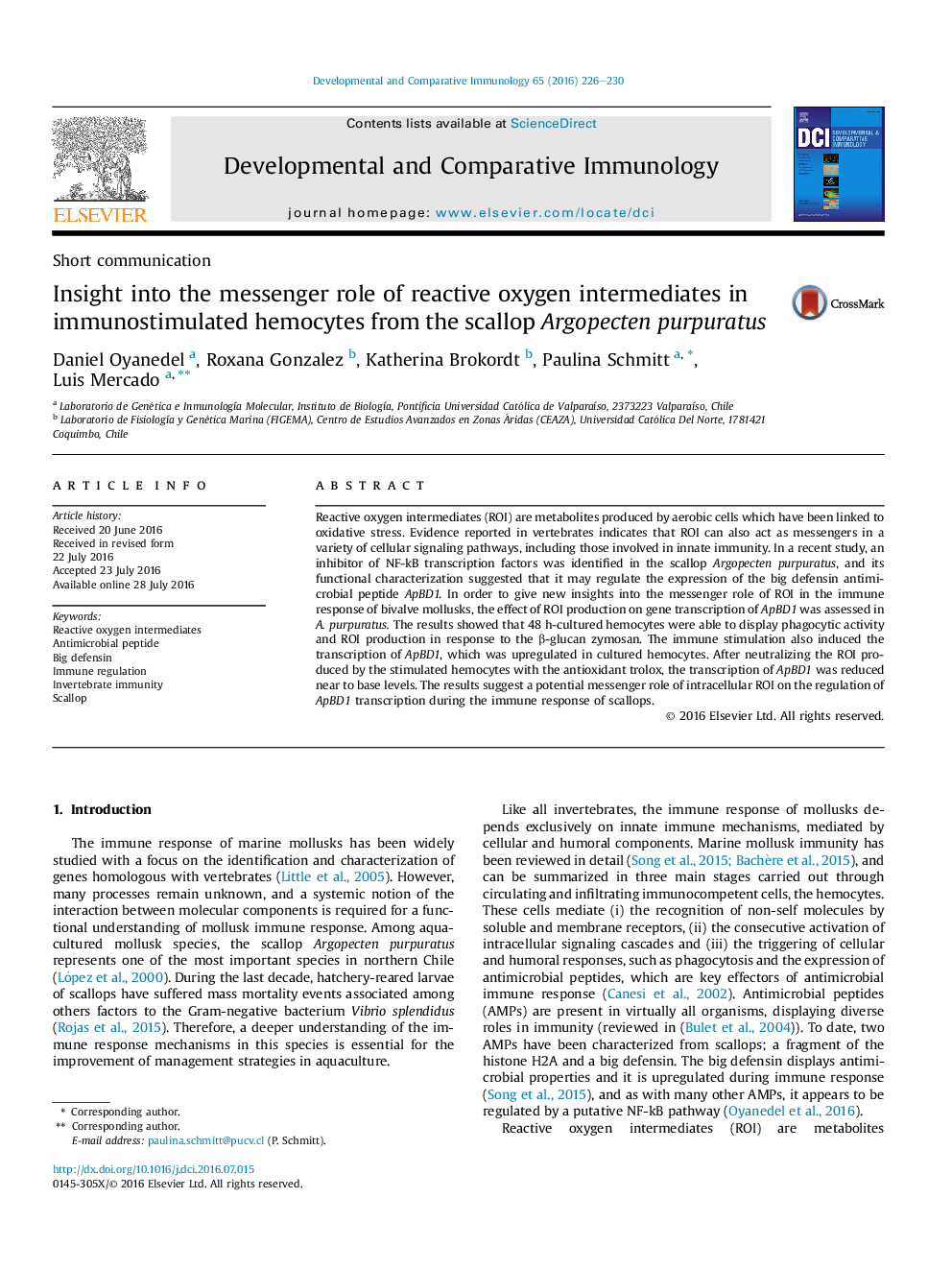| Article ID | Journal | Published Year | Pages | File Type |
|---|---|---|---|---|
| 2428758 | Developmental & Comparative Immunology | 2016 | 5 Pages |
•The effect of ROI on the transcription of a big defensin was assessed in scallop hemocytes.•Cultured hemocytes display phagocytic activity and ROI production in response to zymosan.•The immune stimulation of hemocytes also induced the transcription of big defensin gene.•Inhibiting the ROI accumulation in hemocytes reduced big defensin transcription near to basal levels.•ROI could act as a messenger on the regulation of big defensin transcription in scallops.
Reactive oxygen intermediates (ROI) are metabolites produced by aerobic cells which have been linked to oxidative stress. Evidence reported in vertebrates indicates that ROI can also act as messengers in a variety of cellular signaling pathways, including those involved in innate immunity. In a recent study, an inhibitor of NF-kB transcription factors was identified in the scallop Argopecten purpuratus, and its functional characterization suggested that it may regulate the expression of the big defensin antimicrobial peptide ApBD1. In order to give new insights into the messenger role of ROI in the immune response of bivalve mollusks, the effect of ROI production on gene transcription of ApBD1 was assessed in A. purpuratus. The results showed that 48 h-cultured hemocytes were able to display phagocytic activity and ROI production in response to the β-glucan zymosan. The immune stimulation also induced the transcription of ApBD1, which was upregulated in cultured hemocytes. After neutralizing the ROI produced by the stimulated hemocytes with the antioxidant trolox, the transcription of ApBD1 was reduced near to base levels. The results suggest a potential messenger role of intracellular ROI on the regulation of ApBD1 transcription during the immune response of scallops.
